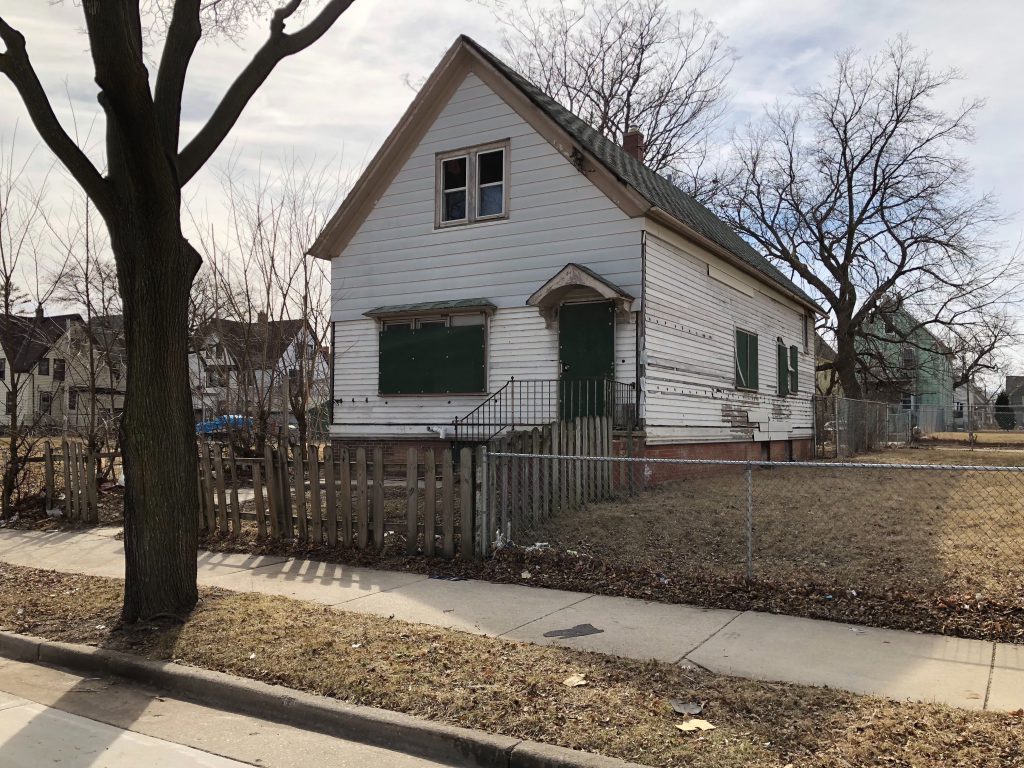Bauman’s Demolition Moratorium Killed
Two council members whose districts would be most affected are strongly opposed.
Alderman Robert Bauman thought he had a straightforward idea.
With an influx of $394 million in federal dollars from the American Rescue Plan Act (ARPA) and a stated priority from Mayor Tom Barrett to use a portion of the funds for affordable housing, Bauman proposed a moratorium on the demolition of city-owned properties with the intent of repairing the hundreds of houses the city acquires via property tax foreclosure.
He introduced a resolution to codify his idea into city policy until funding decisions were made on the ARPA funds. But on Tuesday, representatives of two of the three districts with the most city-owned houses shot down his plan.
“We have the opportunity to put 700 housing units back on the tax rolls for half the cost of building 700 new units,” said Bauman to members of the Zoning, Neighborhoods & Development Committee. Officials with the Department of City Development confirmed that rehabilitating existing houses, even those on the medium-priority raze list, would be cheaper than constructing entirely new houses.
Of the 370 buildings in the city with condemnation orders, 150 are single-family homes and duplexes owned by the city. Only two are designated as a high priority for demolition.
Bauman would like to see the city expand its existing housing programs to create affordable housing for residents at an affordable cost.
“With the city being the landlord we could obviously set the rent at affordable levels,” he said. “We can assist with down payment, mortgage assistance, homebuyer counseling efforts, similar to programs we have had going on for 15 years.”
The proposal would allow for council members to bypass the moratorium for problem properties in their districts, but that wasn’t enough for council members Russell W. Stamper, II and Milele A. Coggs.
“This moratorium, if put into effect, would have a disproportionate impact on those of us that have the greatest number of demo candidates,” said Coggs. She said the aldermanic exception was just extra work for houses she and her constituents already want to see gone.
Bauman singled out Hunger Task Force executive director and Merrill Park resident Sherrie Tussler as an example of what the city should do. Tussler, frustrated by city inaction on demolishing a fire-damaged house across the street from her own, bought the condemned house for $1 with a $25,000 grant from the city, invested in rehabilitating it and sold it for $155,000.
From the 370 properties of any type and ownership with a raze order, Stamper’s 15th district has 128 according to Department of Neighborhood Services Commissioner Erica Roberts. Coggs is second with 89. Bauman is in a three-way tie for fourth with 19.
“Our lived experience has been a little bit different,” said Coggs of Bauman’s description of potential neighborhood improvements. She cited a failed program, the 2015-funded Rental Housing Rehabilitation Program, that was intended to back private developers rehabilitating city-owned homes and managing them as rentals for the city. Only five homes were ever completed. After nonprofit Friends of Housing walked away, citing higher-than-expected rehabilitation costs, the remaining funds were reallocated to the MERI initiative.
Bauman had pushed to spend upwards of $150,000 per house, more than double what Friends of Housing spent, because it would still be cheaper than creating new housing.
“Of my 13 years of service, that was the worst year of service for residents to be calling about properties that should be razed,” said Coggs. The deconstruction has been repeatedly suspended while the city attempts to develop contractor capacity.
The city annually razes approximately 105 structures said Roberts, but Coggs estimated that only five were demolished in 2018.
The biggest issue for Coggs with Bauman’s proposal is one she says she hears about on neighborhood walks from her constituents. “They don’t care about a new house going in,” said the alderwoman. “A new house is not going to go everywhere an old house was, and not because we can’t afford it. Neighborhoods are changing and what neighbors want is changing.” She cited residents on N. 15th St. that want a garden instead of a dilapidated house.
Stamper, who represents the city’s most impoverished district, argued that his constituents don’t want to see their property values increase. “It has the potential of raising the taxes on a neighborhood that doesn’t support that kind of tax,” he said. “I just see this as unneeded right now.”
Coggs said requests for demolition are second only to complaints about reckless driving.
“I do not believe in letting neighborhoods suffer longer with these demo candidates on their blocks,” said the alderwoman.
DNS operations manager Thomas G. Mishefske suggested that the focus be placed on properties not already on the raze list. That includes approximately 500 single-family and duplex structures.
After an hour of debate, Bauman threw in the towel on his proposal. “We’ll hold it, which essentially kills it. Let’s get the demolition going,” he said. “We are very good at creating vacant lots in the city of Milwaukee.”
“If we want to slowly de-densify the city by removing housing units where they currently exist that’s a policy question we can all grapple with,” said the alderman.
Political Contributions Tracker
Displaying political contributions between people mentioned in this story. Learn more.
- June 9, 2018 - Tom Barrett received $100 from Thomas G. Mishefske
- March 16, 2016 - Tom Barrett received $200 from Thomas G. Mishefske
Eyes on Milwaukee
-
Church, Cupid Partner On Affordable Housing
 Dec 4th, 2023 by Jeramey Jannene
Dec 4th, 2023 by Jeramey Jannene
-
Downtown Building Sells For Nearly Twice Its Assessed Value
 Nov 12th, 2023 by Jeramey Jannene
Nov 12th, 2023 by Jeramey Jannene
-
Immigration Office Moving To 310W Building
 Oct 25th, 2023 by Jeramey Jannene
Oct 25th, 2023 by Jeramey Jannene


















